One activity you can’t help notice as you drive around Tanzania is that in addition to a lot of women carrying buckets of water on their head there is an equally large amount of people carrying fire wood around. At quite often intervals along the road side you see bags of chopped up fire wood for sale. This appears to be quite an industry for young men. The road site sale locations vary from 1-2 bags for sale to over 30 bags in some places. The men just go back into the bush off the road and cut down the trees then cut it up into smaller pieces for the buyer to use in their cooking. The bags are quite big and heavy so you see them more being transported on bicycles. Bicycles are used more to load up for transport. The rider then pushes the bike around with its load on the back as it is too heavy and unstable to try to ride. Sometimes there are 2 of these large bags on a bike which makes for a very large load. Or you will see women walking along with bundles of sticks on their heads, or if it is a bigger branch, then maybe a single piece of wood on their head. Less frequently you will see whole acreages cleared with the stacked up logs and branches ready for moving away. Most of the forest here is small trees or scrub so there is little construction quality or size wood available. There are some fences around houses or stock pens made of smaller diameter branches though that the owners put up. Similar to the water problem there is no practical way for the rural villagers to get fuel to cook their meals other than to go find it. This means cutting down trees or branches themselves or to go buy these bags of cut up wood. There is no electricity to speak of run to these rural village houses. Even if someone could afford to install the infrastructure for running power lines to all these villages, the people there more than likely could not afford to buy electricity. Likewise they cannot afford to buy bottle propane gas and they would have trouble transporting it around if they could. Consequently there is no real infrastructure to buy bottled gas anyway in these rural locations. Those that could afford it would have to travel a long way to purchase some, which requires a lot of time as the transport would likely be a bicycle or a bullock drawn cart.
From the west we encourage the villagers to boil surface water before they use it for consumption, but this requires yet more wood to be burned so there is an extra cost to them to do this.
The population appears to be growing fast in these regions. There are a lot of women carrying babies on their backs. A rough unofficial count as we watch women walk by our work sites is that about 50% of them have a baby. Many young unmarried women have children we hear. We recently heard by a person who was at a speech put on by the president of a Children’s Fund that approx 40% of these babies do not make it to 5 yrs old though. A growing population means more fire wood is needed every year.
A climb up onto a high cliff and looking around will soon reveal to the observer that vast tracks of land are bare but for a few trees scattered around. The constant grazing of the cattle and goats by roving herders keeps any grass to a short level. Some areas are devoid of much vegetation just bareish dirt/sand. A growing population of people means a growing population of cows and goats too.
In the long run deforestation of large areas of land is a cost we will all pay with changing weather patterns. There may also be necessary support of a large number of people on a land that can no longer support them. Not to even mention what this is doing to the very valuable tourist resource of the large wild animals in these countries. The governments of these countries that are home to these big animals are meant to be their guardians, yet we seem to be trading in lions and elephants for more cows and goats.
We are told there are some programs, but to date we have not seen any attempts to farm trees to make a sustainable situation where by the trees cut down this year are replaced so that eventually each village would have its own renewing plantation to harvest their wood from. This would solve more than just the wood for the villagers problems too, the whole world would benefit at some global level.
Subscribe to:
Post Comments (Atom)
































































































































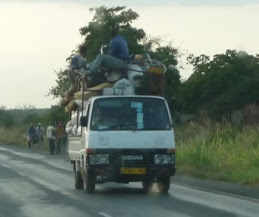





























































































































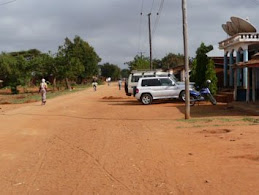

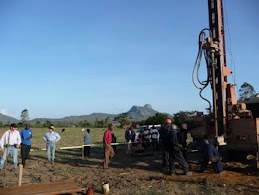


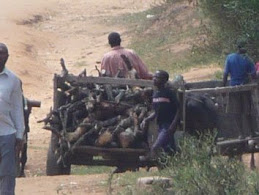
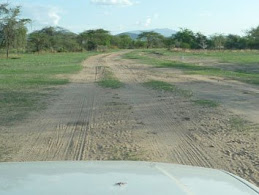























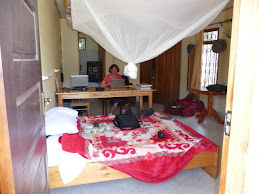

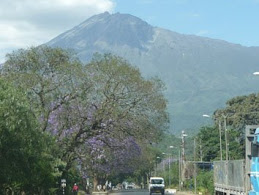
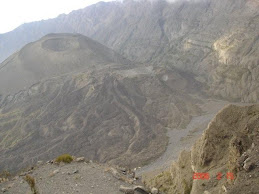
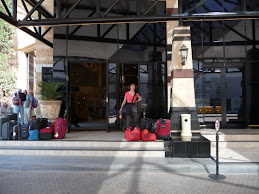
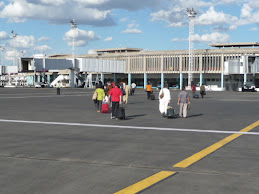
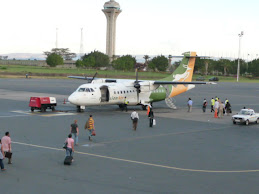
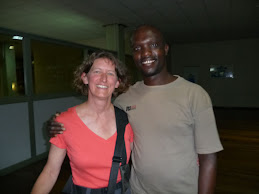
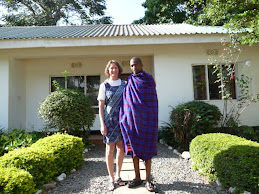
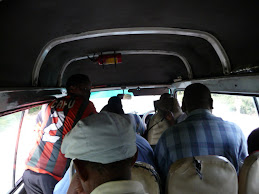


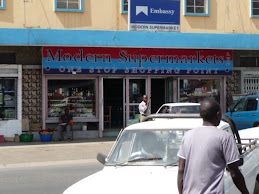





No comments:
Post a Comment